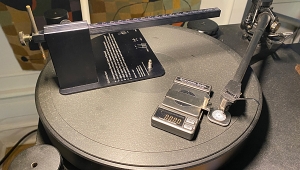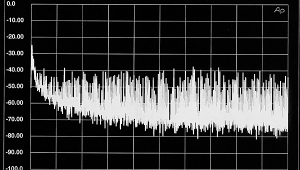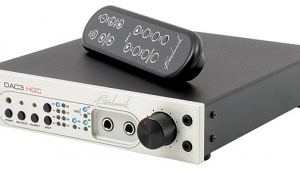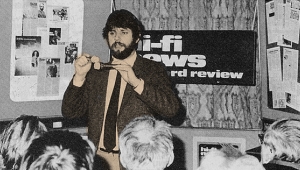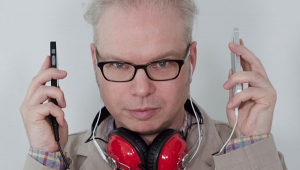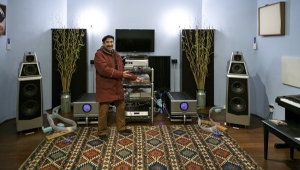| Columns Retired Columns & Blogs |
Dead Man Walking: Jake Heggie and Terrence McNally Page 3
"I was in virtually every scene," said Graham. "And on top of everything else, it was really hard music to sing. There are times when you really have to just think technically, but you can't disassociate so much that you lose the emotional thread. There are just so many things to think about during the performance of a piece like that—not to mention the fact that we had open recording microphones on the very first performance of the piece ever!"
Adding to the pressure during the premiere run was the death of Graham's father. She took solace in her work and her collaborators. "Sister Helen, the person, and Sister Helen, the role, helped me deal with some of that loss. Because I was so involved with her on so many levels, I had a heightened spiritual awareness which informed what I was dealing with in my private life."
Dead Man Walking premiered on October 7, 2000 to packed houses and almost universal critical acclaim. Even more significant, audiences embraced the new opera with a passion that necessitated the addition of two performances to the initial run—an almost unheard-of event for a contemporary opera. Five opera companies—Opera Pacific, Cincinnati Opera, New York City Opera, Austin Lyric Opera, and the State Opera of South Australia—have already commissioned new stagings of the work, and the Dallas Symphony Orchestra has arranged to perform Heggie's orchestral suite from the opera on tour, making Dead Man Walking the most successful American opera premiere in more than half a century.
In February, Erato released its live recording of the premiere performance, a handsomely packaged two-disc set that includes a libretto liberally illustrated with photos from the SFO production. It's an amazing document, and the strongest possible argument for the opera's merits.
The recording is blessed with full-bodied, natural sound; the only clues that it was recorded live are some subdued audience reactions during the drama itself, and extended—and well-deserved—applause at the end of each disc. The balance between orchestral accompaniment and singing is well-judged, and the singers can all be heard clearly, even in the massed choruses when different groups sing opposing lyrics.
Heggie's music is thoroughly contemporary and completely accessible. If McNally's text achieves much of its beauty through its unadorned plain-speaking, Heggie's soaring melodies offer a similar straightforward appeal. The orchestration is unfussy and full of color and texture. The musical vocabulary is modern and eclectic—Heggie incorporates rock and jazz elements—but this is unmistakably opera, not Broadway in evening dress.
Nowhere is this better illustrated than in the orchestral music that accompanies the prologue. A gentle, almost Debussian evocation of a warm summer's eve turns tense and violent when the De Rocher brothers attack the young lovers. In just a few measures Heggie covers a broad swath of emotion, from wistful promise to abject terror, with phenomenal precision. His bold rhythms and surging melodies are beguilingly tonal for the most part, but when needed, the music takes on a menacing edginess.
Susan Graham's performance as Sister Helen is a wonder. Her character is loving and good-natured, but overwhelmed by the emotional toll her vocation requires. She likes De Rocher, but is horrified by his crimes and upset by her inability to offer his victims' parents the solace they, too, seek. Shouldering the lion's share of the opera, Graham sings the first words we hear from the stage as well as the last.
Frederica von Stade, as De Rocher's mother, is sublime. She's a loving mother who can't understand how two of her boys have ended up in jail for hideous crimes. Horrified by what her Joe has done, she cries, "I just don't understand what good my Joe's being dead will do." It would be hard to choose a high point from von Stade's career, but this performance must surely count among the contenders.
John Packard has the almost impossible task of making a brutal character sympathetic in just four scenes. Astonishingly, he succeeds. His Joseph De Rocher comes across as genuinely tough but, ultimately, human. He gets the sneer right, but he also imbues the man with a vulnerability that makes us care about his redemption. His death, portrayed in painfully stark simplicity, delivers an emotional payoff that can only be called operatic. That, as much as anything else, illustrates the triumph of Dead Man Walking. The work reinvigorates opera by honoring the qualities that opera has always venerated: music combined with literature in the service of a great story.
Jake Heggie remains modest. "When you consider it was a first effort—it was Terrence's first opera, it was my first opera—it's quite amazing how much it has resonated with people."
- Log in or register to post comments

